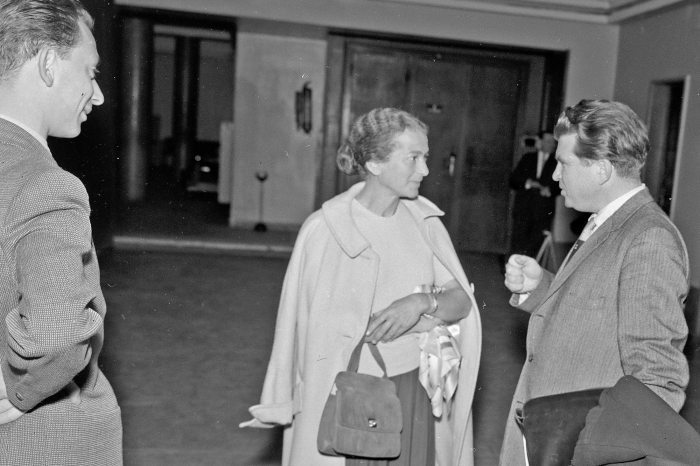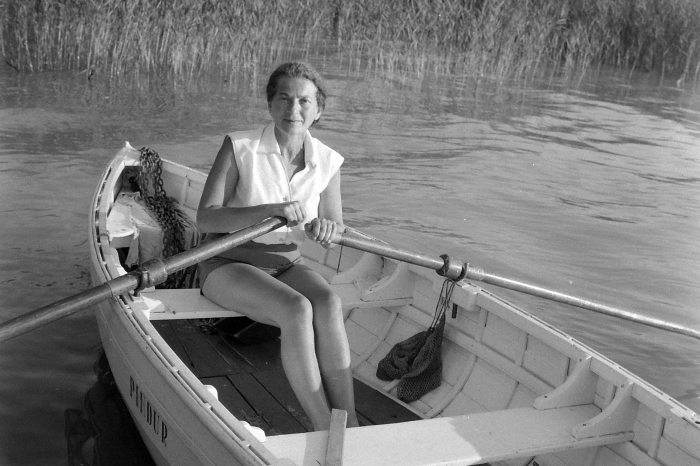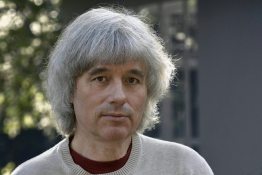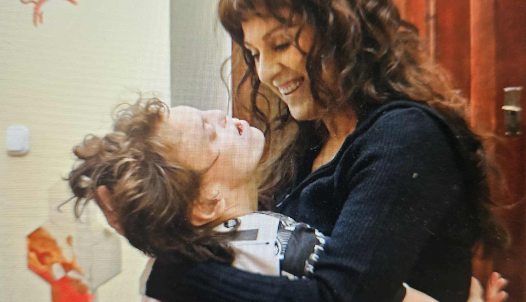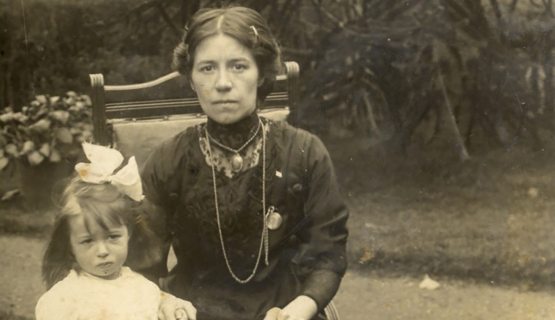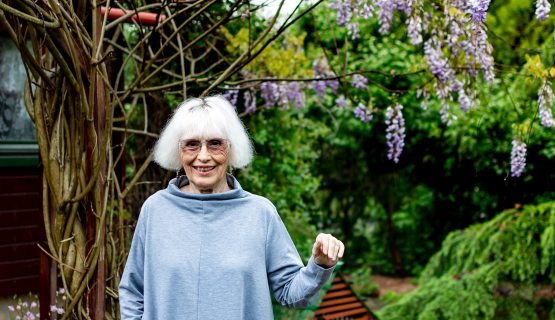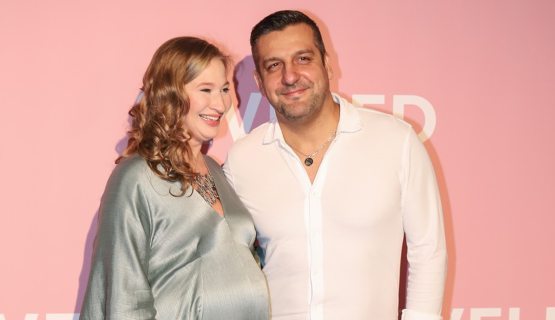Annie Fischer, the Hungarian Queen of the Piano
It is 90 years since Annie Fischer won the first prize at the Franz Liszt International Piano Competition at the age of 19, which made her internationally renowned. Her upwardly spiralling career was interrupted but not broken by the Second World War. At the beginning of the war she and her husband fled to neutral Sweden, from where they returned to Hungary in 1946. The world-famous artist then toured the world from home for the rest of her life, dazzling the world with her magical and unique play. But who was Annie Fischer behind all this success?
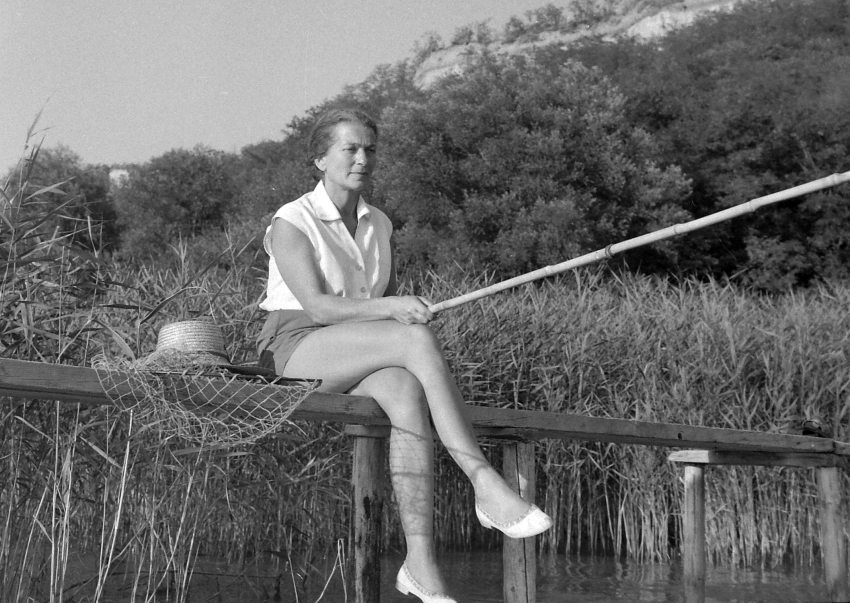
On the road to world fame as a child prodigy
Her parents noticed her talent very early, as she began to play the pieces on the piano she had picked up in a self-taught way, at first by listening to the piano lessons of the piano teacher next door. As a child, she attended the Academy of Music, where she studied with Arnold Székely and later Ernő Dohnányi. In 1924, at the age of ten, she made her first public appearance, performing Beethoven's Piano Concerto No. 1 in C major, and a year later she so charmed a Swiss artist couple with her playing that they immediately offered her a contract, and from then on her career continued to climb steadily. With their support, she became an internationally renowned concert soloist of her time at a very young age. Never playing a piece the same way twice, she became passionately immersed in the music. She built her repertoire primarily on works by Mozart, Beethoven, Schubert, Schumann, Mendelssohn, Chopin, Brahms, and Liszt, and also enjoyed playing works by Handel and Bach. In 1933, at the age of 19, she won first prize at the Franz Liszt International Piano Competition, which brought her worldwide fame, although she never liked competitions.
Her marriage was love to the grave
At the beginning of her career, she met her future husband, the music critic Aladár Tóth, who kept a close eye on the exceptionally talented young musician. "This fragile little girl, when she sits at the piano, is already imbued with the introspection of a true artist's soul, a solitude withdrawn from the world. She is full of seriousness and a sincere, true temperament," he wrote of her when she first appeared in public at the age of ten. He and Annie Fischer became close during a tour of Italy, where Annie's mother asked the critic, who was sixteen years older than her, to accompany her.
On this journey, a lifelong love was born between the two, which lasted until the death of Aladár Tóth.
After the trip to Italy, Aladár Tóth stopped writing reviews about her, but he actively supported Annie's career, and later he also helped her to put together her repertoire for her concerts. Annie was 23 when they married in 1937. They survived the Jewish persecution of the Second World War in neutral Sweden, where they travelled for Annie Fischer's piano concert, and from where they returned to Hungary only in 1946. According to their contemporaries, their relationship was fabulously harmonious, and their marriage, according to their friends, was characterized by a deep intellectual connection as well as a close spiritual bond.
An artist couple in the Rákosi era
Aladár Tóth was the director of the Opera House from 1946, while Annie Fischer toured the world as Hungary's "musical ambassador" from the 1950-1960s. So they were " favoured" by the communist regime, but it was precisely because of their recognition that they managed to save the careers and perhaps even the lives of many of their friends and acquaintances. Annie Fischer, for example, personally went to see Mátyás Rákosi when their landlord was about to be deported, and Aladár Tóth did much to save the artists of the Opera House from the harassment of the regime.
"Annie and Aladár Tóth – just like my mentor Zoltán Kodály – used their name and influence tirelessly to help marginalized and discriminated artists", recalled pianist Tamás Vásáry.
They spent their summers at their house at Lake Balaton, in Balatonaliga, where, in addition to everyday recreation, they regularly hosted the greatest composers, musicians, and critics of the era. They maintained close friendships with Zoltán Kodály and his wife, as well as with leading musicians of the music world, such as György Solti, Imre Ungár, Lívia Rév, and Mihály Kuttner. They had a lively social life; the sounds of Annie Fischer's playing on the Bösendorfer piano and the music they listened to on foreign radio stations could be heard from the house.
The artist couple's idyll on Lake Balaton was disrupted for a time by the communist party state when the Party decided to build a recreational house on the site of their house. According to the story, they were offered several local properties as compensation, but Annie Fischer and her husband insisted on their familiar surroundings, so in the end the Communist Party leadership had a replica of their summer house built for them. Lake Balaton was a prominent place in Annie Fischer's life: she loved fishing, boating on the lake, and, in the evenings, dazzling guests with her cooking.
Later, when she travelled to the farthest corners of the world, she said she would not trade the sunset at Lake Balaton for anything.
Royal dignity and authentic simplicity
Throughout her career, she has worked with world-renowned conductors such as Otto Klemperer, with whom she performed Beethoven's complete Piano Concerto at the Royal Festival Hall in London. She has also appeared at Carnegie Hall in New York, and her performances have travelled the world from Japan to Australia. Although she never taught piano, she was well acquainted with the students of the Academy of Music and followed and supported the path of many young talents throughout her life. She helped Zoltán Kocsis, Tamás Vásáry, András Schiff, Péter Frankl, Ilona Prunyi, Donatella Failoni, Adrienne Hauser and Csilla Varga from the very beginning. Tünde Csoba was the only one with whom she worked for a long time, informally but as a student. "She was very irritated by the 'empty' piano playing. [...] For her, there was only one thing that was important, and you had to deal with that: what the composer was thinking, what he felt, why he wrote this or that piece, and what he had to say. Even if today all that is completely unfathomable. That's what you have to convey to the audience, that's the only thing that makes sense," recalls Tünde Csoba, whom Annie also helped to reducer her performance anxiety. This is in line with Zoltán Kocsis' description of her: "Perhaps no one has pursued the artistic truth of the music with such fierce perseverance as she has." Elsewhere, he said that Annie Fischer was characterized by "authentic simplicity combined with royal dignity".
Nevertheless, she was also a chain-smoker, who put down her cigarette almost only for the time she sat on stage in front of the piano, and by the time she reached the curtain at the end of the performance, she was awaited with a lit cigarette. She always dressed with elegance and modesty, and her beautiful figure and photogenic face often inspired photographers.
The pianist who didn't like to listen to her own playing
In her old age, she had become so immersed in Beethoven's works that she was the only pianist in the world to record all 32 of his sonatas.
She later repeated the recordings several times because she was dissatisfied with them, then refused to allow them to be released, and it was only after her death in 1995 at the age of 80 that they became available to the public. Throughout her life, she was reputed to dislike recordings, especially of her own playing, and so she left relatively few recordings for her artistic stature. "After I die, they can release anything with me," she told her friends.
She did not give any interviews either and tried to avoid the adoration that surrounded her. However, several pirate recordings of her piano playing were made and anecdotes record how, despite her self-criticism, she was sometimes surprised by the excellence of her own playing. It is recalled that once, on entering Péter Frankl's apartment, she heard music playing on a record and asked, "Who plays Mozart so beautifully?" "This is a rare pirate record of you playing the Piano Concerto in E flat major with Otto Klemperer," was the reply.
Annie Fischer has received three Kossuth Prizes among her many awards. She devoted her whole life to her vocation and music, which is why she never had children. Even as she approached her eightieth birthday, she gave a few concerts for audiences in Italy, Japan, and Italy. "When we talked about a career as a performer, she often asked me: 'Do you know what you're into? It's a hell of a career." She often talked about how hard it was, but she could never give it up. The career was her life," recalls his student Tünde Csoba. She played and dazzled the world for seventy years.
Resources used:
• http://www.parlando.hu/Csoba1.htm
https://web.archive.org/web/20170815135801/http://lfze.hu/hu/nagy-elodok/-/asset_publisher/HVHn5fqOrfp7/content/fischer-annie/10192#
http://www.parlando.hu/2014/2014-4/Egy-hamis-FischerAnnie-kep-urugyen.pdf
http://epa.oszk.hu/02900/02964/00014/pdf/EPA02964_gramofon_2014_nyar_006-016.pdf
https://www.ujsagmuzeum.hu/fischer-annie/
https://mersz.hu/mod/object.php?objazonosito=matud202110_f66602_i1
